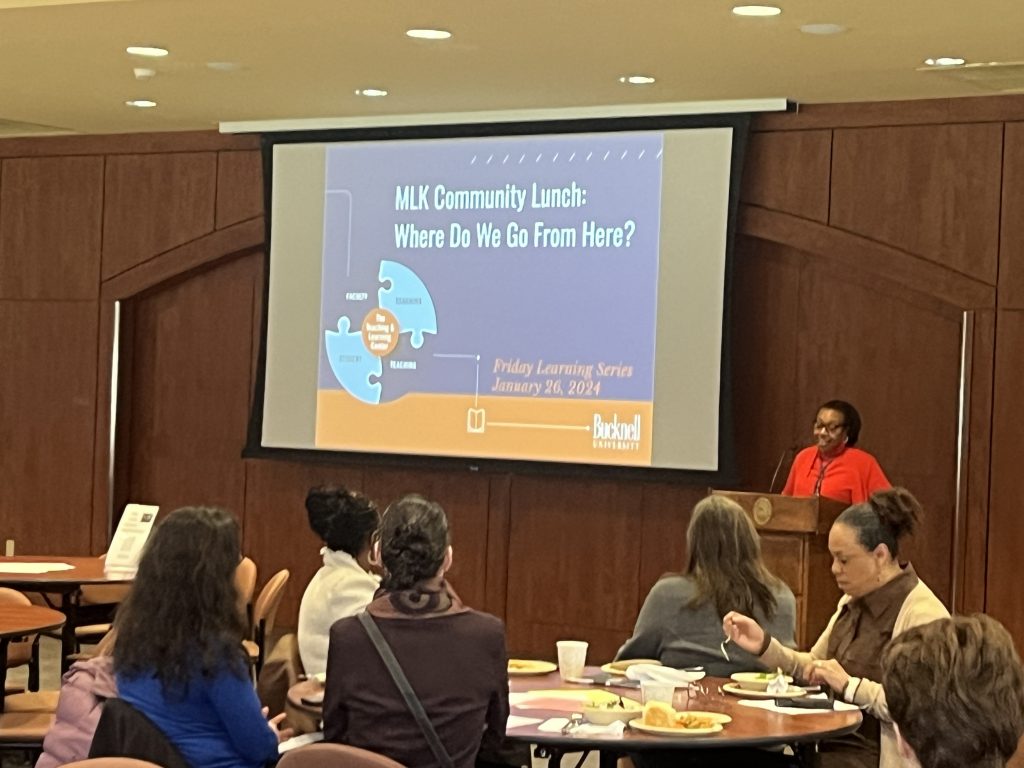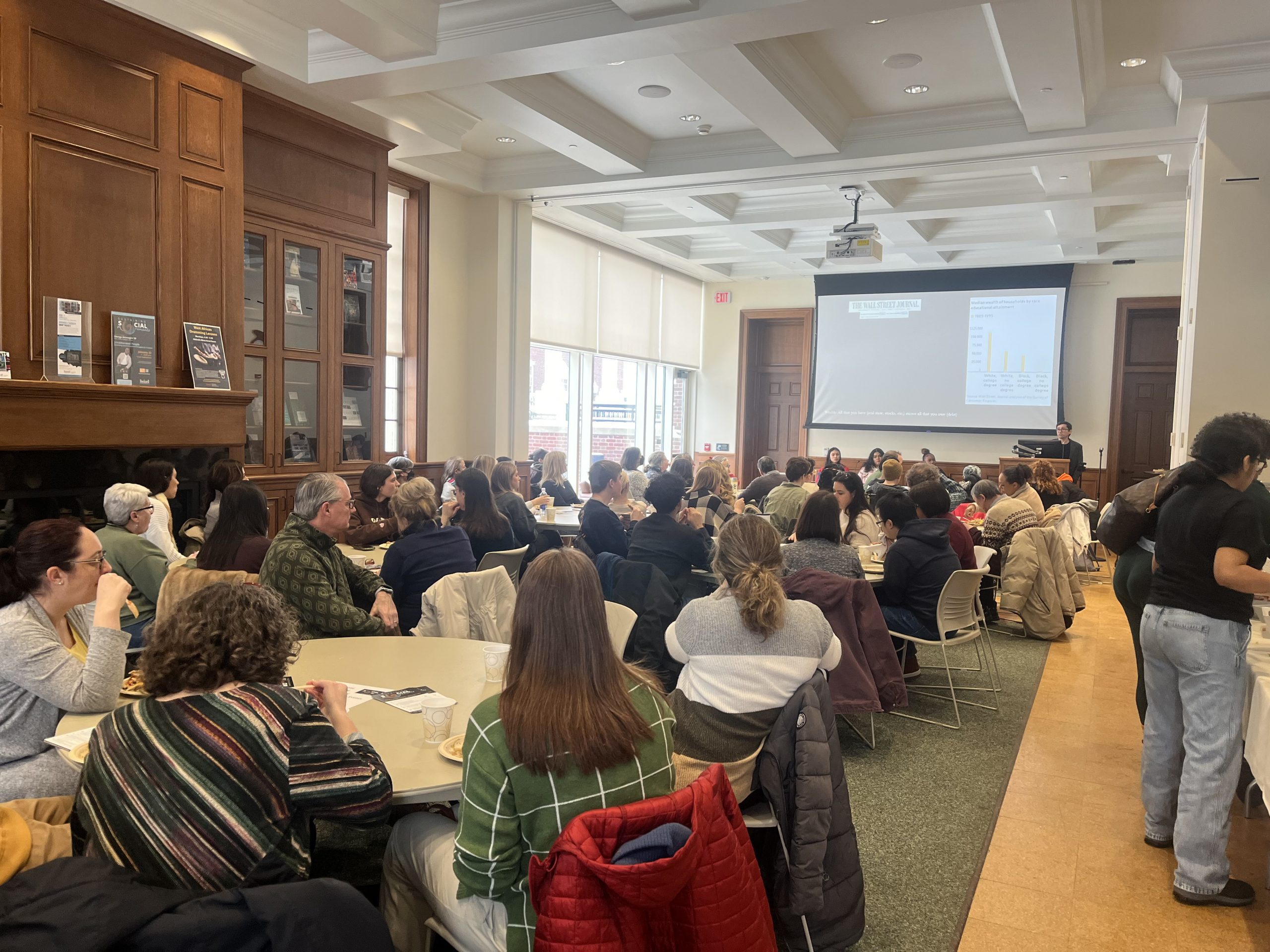On January 19th, Bucknell University hosted a pivotal MLK Week Event centered on the imperative task of unlearning racism within our institution. The event, held in the Hildreth Mirza Great Room, drew significant attendance as students and faculty convened to hear the thoughts and findings of the panel members. The panel discussion featured three inquisitive students, Gabby Diaz, Amina Reyes, and Dani Perdomo-Chavez, as well as Bucknell’s Associate Professor of Latin American Studies, Dr. David Rojas.
During the panel, they shed light on the pressing need for undergraduate research projects aimed at fostering diversity, equity, and inclusion on our predominantly white campus. Dr. Rojas opened the presentation by highlighting the stark disparities in post-undergraduate job opportunities between white graduates and graduates of color. His insightful findings underscored the profound differences in how Bucknell functions or does not function for students outside the majority. His evidence emphasized the urgent need for anti-racist action within our institution. The panelists delved into their respective research projects, offering compelling insights into the lives of marginalized communities at Bucknell. Aminah Barry illuminated the experiences of Black athletes, who often grapple with ostracization from both their team and ethnic communities as well as a lack of support for their education. Gabby Diaz explored the critical intersection of representation and education. Dani Perdomo-Chavez articulated her research’s overarching goal of effecting tangible change. This includes advocating for equal representation in faculty, equitable budgeting for cultural activities, and especially the inclusion of commencement speakers of color.
These research projects serve as a poignant reminder of the profound work that lies ahead in dismantling systemic racism at Bucknell. As an institution historically shaped to cater to a white population, we must confront these inequities and commit to fostering a campus environment that is truly supportive of all students. The event prompted the age-old question of community or culture: Should we focus on attracting more students from diverse backgrounds, or should we prioritize transforming our institutional culture to better serve the needs of our current student body? As we reflect on these insights shared during MLK Week, let us remember that the first
step to equity begins with unlearning racism and being open to discussion.

